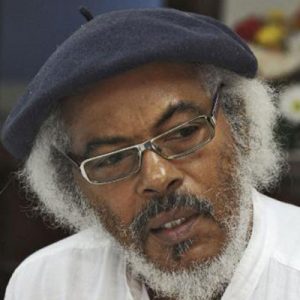
Dr. Michael Witter
There is a ferment building in the world that is realigning relations among nation states, global political and economic power, and even the relations between life as we know it on Earth and Earth itself. Hanging over humanity are threats of obliteration from nuclear war, the proliferation of viruses, the destructiveness of climate change, and the recently announced blossoming of the ominous powers of Artificial Intelligence. There is more happening than both the traditional and social media can keep up with, all the more because the same media hypes some events into mini apocalypses that consume the entire band width of comprehension. The news in and about the western hemisphere exhausts our minds daily, with barely a mention of what is happening in the rest of the world where 77% of the world population lives.
There is a mounting hysteria about the power and global presence of China, with little description of what life is like in China and the way the people face the challenges of their lives. India now has the largest population, but the complexity of its political economy is as unfathomable to western journalists as is China’s. Africa is often in the news, mostly for the breakdown of security, and by extension of social life, and sometimes there is reference to the competition to grab its resources for the development of others. Latin America is forgotten more often than not.
The Caribbean seems to be adrift, wandering aimlessly through the sea of existential threats of debt, social disorder, climate change, pandemics, and every episode of global turmoil. Occasionally, one of our leaders shares a vision that catches our attention and for a fleeting moment we look up from the ground shifting under our feet ultimately for economic reasons. In recent times, that voice has been Mia Mottley’s, and even more recently, there was a powerful statement from elder statesman P J Patterson at a conference on the state of the Black world organized by the Institute of the Black World in the USA.
Patterson’s Call
Patterson insisted that democracy ought not be limited to two parties that subscribe to capitalism competing in elections for power. He called out the hypocrisy of corrupting electoral and judicial systems at home while using democracy as a tool of destabilization and interference in the development processes abroad, especially in Africa and the Caribbean. And he stated lucidly “— that the modern pursuit of democracy and development reflects nothing more than the yearning of our forebears for freedom and agency. The challenge is for us to build inclusive societies, anchored by equal rights and justice for all, and encompassing social, economic, and environmental progress —” Put more directly, the struggle against the oppression of slavery and colonialism extends naturally into the building of inclusive societies that are respectful of the people and the natural environment that nurtures them.
In effect, one can see this as a challenge to build a democratic society against the particular historical background of a people’s traditions and culture in the broad sense, and on the basis of an economy that offers equal opportunities to its citizens and uses the natural environment sustainably. Such a political process has been initiated in several countries over the last several decades and faltered from the exhaustion of leadership, or stymied by unrelenting blockades from the global powers, or turned back through internal division within the body politic.
The Jamaican Case
Jamaica, for example, has been so long in a ferment that it now seems normal. Maybe what is identified as the high and persistent crime wave there is not exceptional social indiscipline but a civil war that is yet to be acknowledged. The two main dimensions of crime are appropriation of wealth through robbery and various scams and violent conflict within families, gangs and communities that too often claim lives especially of the innocent.
Consider how many decades the government of Jamaica has been trying to stabilize the economy, and when success was claimed in the last year or so, there was no recognition of the hardships the people endured from cutbacks in social services, job insecurity and the high cost of living as the price of that stabilization. It is now more than four decades that the obsession with economic growth and debt repayment has dominated government policy. Growth has eluded all attempts. On the other hand, debt repayment, which is a modern form of draining the surplus from the economy, has been steady and generally successful.
There seems to be a long ebb in the intense ideological rivalry of the 70s and 80s of the two main political parties as the majority of the electorate withdrew from voting in apathy. The lack of response to the government’s campaign for social distancing and vaccination against COVID revealed a popular disregard for official policy and law. The challenge of re-engaging the Jamaican people in constructive nation-building is now that much greater with the loss of trust in leadership, and for want of inspiring leadership.
The Jamaican government has initiated a process of cosmetic changes of the constitution which some citizens see as an opportunity to make fundamental changes so that the revised constitution centres on the needs and interests of the ordinary citizen. In the context of the times, this process could galvanize many other incipient changes in the management of the society at both the macro and micro levels. The ferment is also within the political parties, the University of the West Indies, the main professional groups – police, teachers, medical personnel – in the public sector, the jostling for land rights between the government and the Maroons, the sustained surge for visas to migrate, and all manner of individualism by too many young people with little regard for social responsibility.
The Leadership
The circumstances call for strong leadership that uses democratic means to steer the country toward the development goals that Patterson articulated so clearly. Central to this is mobilization of the population around the issues that they perceive confronting them, educating them to where those local issues fit into the larger national picture, and enlisting them in a campaign for transforming the unequal economy and society by strategies for inclusive and sustainable development.
The political path to state power will probably be like George Lamming’s crabs marching to the sea – first this way, then that; forward, back, and forward again; but reaching the sea is never in doubt. It requires building a political movement that can win national elections convincingly and then embrace its rivals in a de facto government of national unity around the programme of inclusive and sustainable development. The conscious political leaders will have to guide the movement along a path of twists, turns and ups and downs that reflect global, local and even environmental conditions. Social media provides powerful modern tools to augment traditional direct contact for mobilization and consolidation. But social media is also effective for sabotaging mobilization and governance, and perhaps it is all the more pernicious since it only has to incite doubt. The challenge is to manage the inevitable opposition especially when it is supported by powerful external forces. The sine qua non for that is cultivating popular support with concrete progress in achieving the development goals and providing accessible information about the achievements.
Reform of Governance Systems and Processes
Constitutional reform must remove the mandate for a Parliamentary opposition which has increasingly served to paralyse governance and replace it with readily accessible channels for critical reviews of government policy from all political representatives and the public at large. A new structure of government is needed that resembles an assembly of directly elected people’s representatives and a separate and also directly elected executive president. Representatives ought not be eligible for appointment to the Cabinet so that they can concentrate on representing the interests of their constituencies. They will of course have the responsibility and authority to approve Cabinet appointments. Six decades of political Independence has shown that the Westminster system does not have the flexibility for rapid adjustment nor the capacity for policy focus to support the transformation into an inclusive and sustainably developed economy and society.
Development Strategy
Inevitably, the state must play a leading role in the development strategy by implementing the policies and supporting programmes to make the changes and build the requisite institutions. That leading role is in partnership with the business community that buys into a green investment agenda in all its connotations, especially the satisfaction with lower profit margins and higher rates of reinvestment in the local economy. The partnership must include as well civil society in all the spheres of community and environmental development. In short, while at this stage of development, the state must lead, it must do so in partnership with the people in their business activities and in their broader lived experiences.
The principal elements in such a development strategy are:
- Flexible foreign policy, targeting international market diversification and green investment;
- Debt management, focusing on minimizing the rate of repayment and maximizing the loans with the potential for foreign exchange earnings or savings in the new borrowing;
- Public investment, especially in digital infrastructure and road access to rural communities;
- Green investment strategy, especially for foreign investments;
- Regulation of capital, labour, foreign exchange, energy and other markets for basic goods and services;
- Education, reformed comprehensively for shaping socially responsible and productive citizens;
- Health, re-focused on wellness and public health;
- Housing, with the emphasis on construction in planned settlements;
- Adaptation to climate change in partnership with the business community and civil society.
One can fill in the gaps of the above broad outlines to complete the strategy. For present purposes, the above should suffice to indicate one interpretation of what Patterson called for, while inviting others to lay out alternative versions of his vision.
Reparative Justice and Development Strategy
The idea that development is the logical extension of the struggles against the oppression of slavery and colonialism and the unequal relations bequeathed to the present economic life focuses on the historical continuities. Change is the dialectical companion of continuity. Perhaps the break in the continuity Patterson has identified is that instead of struggling against what was imposed by others, the struggle now must target a world envisaged by a collective vision, designed in the context of the dynamic global realities, and built by the efforts of free people with voice. Formulating that collective vision will benefit from reparative justice. Patterson ended his presentation with a call to mobilize to secure reparative justice to “— empower — [the] people [of Global Africa] — to rise above yonder horizons to realize [Garvey’s call for] One Aim, One Destiny, One Love.”
With such a resolution of the dysfunctional psyche etched by centuries of oppression and exploitation in the minds of African peoples, and with just compensation for the looting of their wealth, the potential for socio-economic and political development becomes all the more achievable.
Dr. Michael Witter is a political economist who works on problems of economic development, primarily for the Caribbean.















